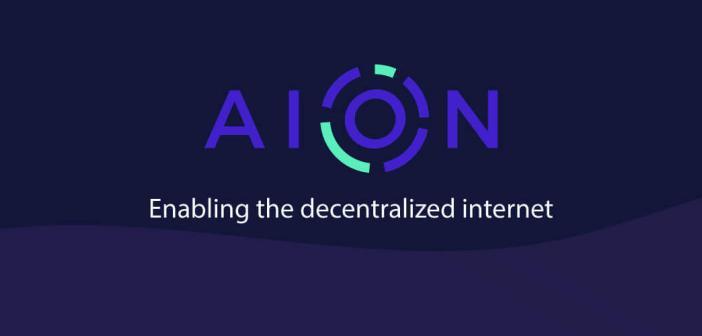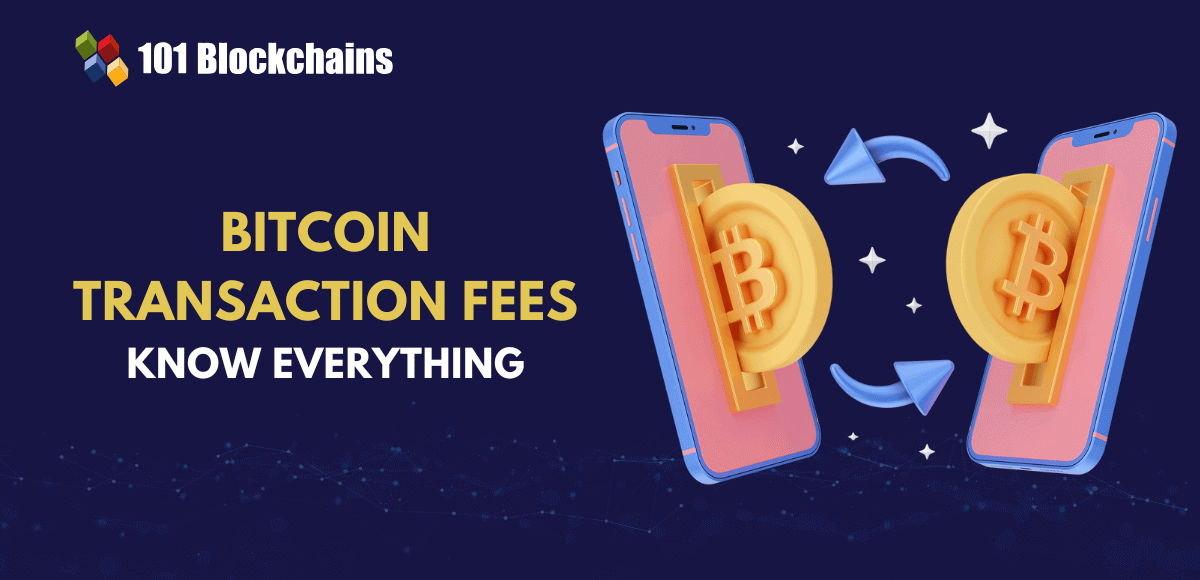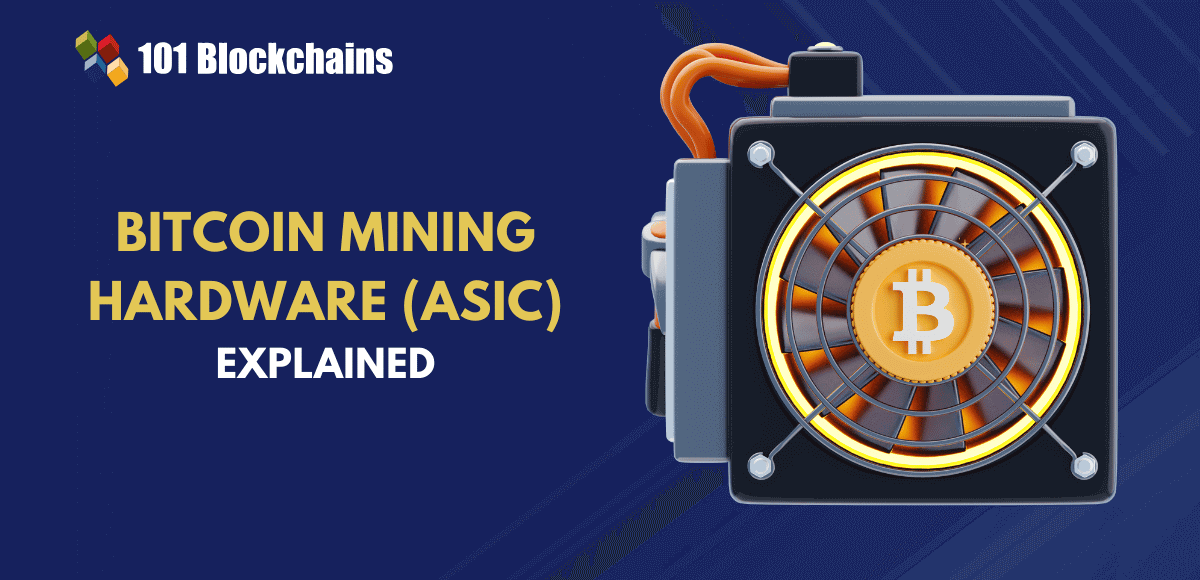Learn how blockchain truly works, master key definitions, and uncover what makes smart contracts so "smart." Dive into the fundamentals, gain valuable insights, and start your blockchain journey today!

Guides
101 Blockchains
on June 18, 2018
Beginner’s Guide: What is AION? World First Third Generation Blockchain Network
- AION – The Decentralized Internet
- What is AION Network?
- AION Blockchain- Bringing Interoperability and Increased Security to Cryptosphere
- AION Team
- AION TOKEN
- Ideal Users of AION Blockchain
- 1. Startups
- 2. Enterprises
- 3. DApp Developers
- 4. Validators
- 5. Bridge Builders
- Benefits of AION
- 1. Federated Blockchains
- 2. Enhanced Scalability
- 3. Customized Blockchain
- Build your Own Customized Aion-Compatible Blockchain
- How Does AION Network Work?
- 1. Connecting Networks
- 2. Interchain Transaction
- 3. Bridges
- 4. Participating Networks
- Future of AION Cryptocurrency
Do you believe that the blockchain technology will escalate in future? If so, you will certainly need mechanisms, bridges and processes to move your data between various blockchain networks. After all, the world runs on networking and information sharing. That’s exactly what the AION network provides in the blockchain-driven world. But what is AION exactly?
Build your identity as a certified blockchain expert with 101 Blockchains’ Blockchain Certifications designed to provide enhanced career prospects.
AION – The Decentralized Internet
Nuco, a Canadian enterprise blockchain firm, developed AION network that utilizes the AION token.
AION is a multi-tier blockchain system that is designed to resolve the issues of privacy, scalability, and interoperability with the existing blockchain networks.
The first-generation blockchain projects such as Bitcoin enable people to record peer-to-peer transactions on a public distributed ledger. Then came the second generation blockchain projects, such as Ethereum that allowed developers to build and host their own projects, using more sophisticated algorithms.
But, both the first and second generation projects don’t leverage the power of interconnectivity of blockchain network on a global scale.
Thus, the third generation blockchain networks came into existence that made discrete blockchain communication possible. And, AION is the world’s first third-generation blockchain network!
Branded as a blockchain network, AION allows flawless communication between a variety of blockchains and help to manage its applications.
What is AION Network?
AION Network supports custom blockchain structures and provides a trustless mechanism for cross-chain interoperability. It passes value, logic, and liquid assets among the users of the network where transactions take place without involving intermediaries.
The first dedicated public, enterprise AION network is known as AION-1. This best-in-class, third-generation blockchain demonstrates the next level of security and crypto economic motivational incentives in the crypto space.

Image Credits: AION
Want to become a Cryptocurrency expert? Enroll Now in Cryptocurrency Fundamentals Course
AION Blockchain- Bringing Interoperability and Increased Security to Cryptosphere
The mainstream adoption of blockchain technology demands interoperability. Blockchain networks must be able to communicate with legacy systems such as financial institutions to succeed.
Unfortunately, as of now, communication between the cryosphere and legacy-world is challenging.
Different crypto coins such as Ethereum, Bitcoin, Zcash, etc., can’t communicate with one another. It’s challenging for Bitcoin to know what’s going on in Litecoin network and vice-versa.
Though crypto exchanges provide a portal between digital currencies, there is still a problem. The issue is crypto exchanges are not decentralized. These are extremely vulnerable to security breaches such as hacking and blackout for long periods.
AION Blockchain aims to bolster interoperability and security in the cryptosphere. It provides a reliable solution for scalability, security, and interoperability issues to both private and public blockchains.
Want to become a bitcoin expert? Enroll Now in Getting Started with Bitcoin Technology Course
AION Team
Matthew Spoke, the CEO Of Nuco Global Inc. founded AION in 2017. Nuco also launched the Aion foundation and the Aion ecosystem.
The team behind this community-driven project consists of skillful software engineers, Ali Sharif, Chris Lin and Alexandra Roatis each with years of technological experience. Nuco CTO, Junius Tu, has over 15 years of experience in blockchain leadership.
Business developers are Duncan Cameron and Dipesh Pradhan. The CFO, Jason Burke, and COO, Kesem Frank also hold a huge experience in cryptosphere and entrepreneurship.
AION TOKEN
Aion utilizes the ERC20 compliant AION token. The AION is facilitated initially on the Ethereum blockchain. But, users can conveniently transform it to AION network and transfer between both blockchains.
Ideal Users of AION Blockchain
According to AION founder and CEO, five types of users can use the AION blockchain:
1. Startups
An explosive number of startups now want blockchain technology to support their business. They usually have a deep knowledge of their businesses, but they’re not much known about blockchain.
AION helps connect their business to different blockchain-based solutions related to their niche. Using Aion network and its solutions, startups can focus on the areas where they’ve expertise in.
2. Enterprises
The interoperability offered by Aion blockchain connects the legacy industries with the crypto industries seamlessly. The Aion team has spent a lot of time to understand what prevents big enterprises from leverage the power of the cryptosphere.
Start your blockchain journey Now with the Enterprise Blockchains Fundamentals
3. DApp Developers
Many developers are working to develop dapps (Decentralized Apps) based on ethereum, bitcoin, etc. But, the lack of interoperability limits the developers to only one protocol. Aion solves this problem by enabling dapp developers to make transitions across multiple systems.
4. Validators
The core users of Aion are the validators, people who are in charge of consensus within the Aion ecosystem. They monitor and verify each transaction to check its validity before transferring to the destination blockchain network.
5. Bridge Builders
Another group of Aion core users is bridge builders who will monitor interchain transactions.
Benefits of AION

Image Credits: AION
Aion offers following benefits to both private and public organizations:
1. Federated Blockchains
Aion enables interoperability and communication between various blockchain networks using a high-performance bridging mechanism. Users can transfer both the value and data between blockchains using this bridging mechanism.
2. Enhanced Scalability
Scalability is one of the biggest issues with the first and second-generation blockchains. Aion resolves this issue of scalability by using a virtual machine. The virtual machine enables applications to function across multiple different blockchains with improved performance and scalability.
3. Customized Blockchain
You can design a customized blockchain using the Aion ecosystem while maintaining interoperability with other blockchain networks. Your blockchain can include different consensus algorithms and virtual machines.
Curious to learn about blockchain implementation and strategy for managing your blockchain projects? Enroll Now in Blockchain Technology – Implementation And Strategy Course!
Build your Own Customized Aion-Compatible Blockchain
The Aion network-compatible blockchain provides each AION ERC-20 token holder with the ability to build their own blockchain and alpha capabilities. It comes with a complete ecosystem of tools and services that enable the next generation of blockchain functionalities. Features are:
- Enterprise security and quality, BFT kernel
- Huge scalable functionality to deploy a large network
- Compliance with ERC20 policies and administration tools
- Java API with low latency and high bandwidth
How Does AION Network Work?
The multi-tier Aion network consists of the following components:
1. Connecting Networks
Connecting Networks are protocols that enable communication between the private and public blockchains within the AION blockchain ecosystem. It provides the route for message transfer between participating blockchains using a bridging protocol.
Connecting networks also ensures the smooth flow of transactions between networks while managing difficulties.
2. Interchain Transaction
Interchain transactions enable all connected networks to communicate with each other. The interchain transactions are created on the source blockchain and flow through bridges and connecting networks to reach the target blockchain.
Each interchain transaction consists of:
- Payload – Actual data
- Metadata – Information related to routine and fee
- Merkle Proof (Optional) – Used if the sender wants to bypass the bridge
A validator at each phase of this process verifies the transaction validity. If rejects invalid transactions, the ecosystem reverts to the previous state before the transaction went through.
3. Bridges
Bridges are validators who validate the interchain transactions across the network. It signs and broadcast the transaction as valid only if the source blockchain has sealed it and paid the forwarding fees for it.
Multiple validator groups can register multiple bridges on the same blockchain network. The user determines which bridge to use by mentioning the target network.
4. Participating Networks
Any network eligible to join the Aion ecosystem is called participating networking. It can be a blockchain entity, oracles, database cluster, or cryplets as well. Each participating network should be:
- Decentralized
- Able to differentiate between regular and interchain transactions
- Familiar with the consensus protocol used by the bridge and to store a valid transaction.
- Should have locktime whenever an interchain transaction is on hold.
Start learning Blockchain with World’s first Blockchain Skill Paths with quality resources tailored by industry experts Now!
Future of AION Cryptocurrency
Blockchain and decentralization are going to be our zeitgeists. Thus, mastering interoperability is crucial, and adoption of AION seems to be an incredible idea.
Currently, the team behind this third-generation blockchain has two major milestones to be accomplished by 2019. The first phase includes the development of Virtual Machine (VM), an enhanced proof-of-work consensus algorithm, and the releases of technical papers for Aion VM, Aion bridging and proof-of-intelligence.
The second milestone includes the bridging of all participating networks, releasing the second version of VM and the completion of the Validator Nomination consensus mechanism.
With the continuous growth in cryptosphere, the fastest expanding concept of side-chains and growing demand for interaction between blockchains, AION seems to be an obvious success in future.
*Disclaimer: The article should not be taken as, and is not intended to provide any investment advice. Claims made in this article do not constitute investment advice and should not be taken as such. 101 Blockchains shall not be responsible for any loss sustained by any person who relies on this article. Do your own research!






